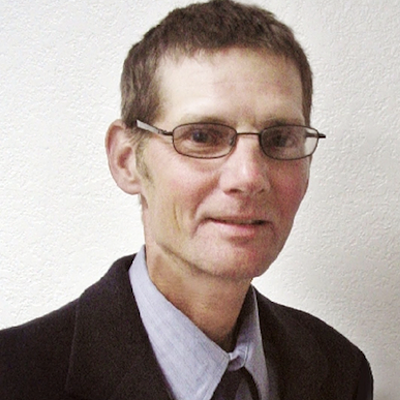One schoolhouse neighbor thinks the district should start addressing the funding problem now, and his solution is simple--TUSD needs to better control the use of its air-conditioning systems.
Chris Nichols has been complaining since 1997 about the improper usage of the cooling system on holidays, rodeo weekend, late at night and over the summer at Roskruge Middle School on Sixth Street.
"If they would just follow common-sense rules, there is so much money for the pickings," he says. "But instead, they just make excuses, and the system just keeps going."
Nichols additionally complains about the system operating when it is 50 degrees outside. "Kids will be in jackets (on the playground)," he says, "and the air conditioner will be on 16 hours in a row."
Nichols also believes the school's air conditioner should be shut off when the building is vacant. "They could turn it off when (the custodian) locks the chain-link fence around the property," he says, "but the air conditioning seems beyond the district's control.
"TUSD officials are intentionally wasting energy, and taxpayer money, at many schools, not just Roskruge," Nichols says. "If they don't use their utility funding, they don't get to keep the money."
TUSD's assets and energy manager, Doug Crockett, has heard Nichols' complaints. He offers a different explanation.
"It's not the intention to run the air-conditioning system when people are not in the building," Crockett says. He indicates the schedule for air conditioning is 6 a.m. to 9 p.m. during the week, but that's subject to overrides.
"The district does rent out buildings at nights and on weekends," Crockett points out. "TUSD staff has checked out (Nichols') allegations and made corrections as much as possible."
Other explanations for unnecessarily running the Roskruge air conditioning have been offered by various district administrators over the years. Nichols has letters about the issue dating back to 1997, the first of which, from a TUSD official, states: "We believe we have discovered and addressed the problem."
That proved incorrect, and later, some district representatives blamed computer hackers for the problems, while others believed employees were fooling around with thermostats.
As for cooling a building when it is chilly outside, Crockett says: "I understand Mr. Nichols' concerns, and I support his asking questions, but a school is a different entity than a house."
The stakes in this dispute are much higher than one citizen's complaints about the waste of energy and taxpayer dollars. When Arizona voters six years ago approved increasing the sales tax to support education, a provision in the initiative required ending what is called "excess utility funding."
This pot of money, which includes property-tax receipts as well as state general funds, is slated to expire in three years. "It could create a huge budget shortfall," for the district, says TUSD's Crockett, who recently was named Arizona Energy Advocate of the Year by the governor's office.
Trying to save at least a portion of that money through energy conservation programs in the schools won't be easy for TUSD. Figures prepared by Crockett show that 70 of the 105 district facilities analyzed in 2004 had results of 50 or lower on a nationwide scale of energy efficiency in school buildings, where 100 is the best score.
"We are spending too much (on utilities) per square foot at some of our schools," Crockett admits. "We encourage each school to do what they can to control costs."
Those incentives include the Resources Efficiency Awareness Program (REAP), which uses financial rewards to promote energy conservation. But Crockett told school Superintendent Roger Pfeuffer, in a September 2004 memorandum, that an exclusively positive approach to the issue might have to change.
"We may need to consider negative REAP points with financial consequences for sites to get more complete participation," he suggested.
TUSD board member Judy Burns doesn't remember ever being informed of that proposal by district administrators. She also says Crockett has suggested ways of addressing the pending loss of utility funding, but Pfeuffer has yet to bring them to the board.
While Burns indicates she has not heard about cooling problems occurring at other schools, she says she appreciates Nichols' frustration. As a board member, she adds that even she doesn't know who is ultimately responsible for controlling the air conditioning.
For his part, Nichols calculates the district could save up to $2 million a year if the 30 lowest schools in the national rating system were brought up to a 50 percent level.
Crockett counters that the money to accomplish goals like that are in very short supply. "We don't have a lot of capital money to upgrade the current systems," he says.
Additionally, Crockett says the district doesn't even have enough staff members to correct air-conditioning timing problems when they do occur.
On the bright side, Crockett points out bond funds approved by the voters in 2004 will help address specific utility-related issues. "We can invest in some energy efficiencies," he says, "but that's our only source of capital money."
As for the air-conditioning units running much of the time at Roskruge, Nichols charges district officials just ignore him. "I don't think anyone at TUSD is working to turn the air conditioning off," he concludes.











